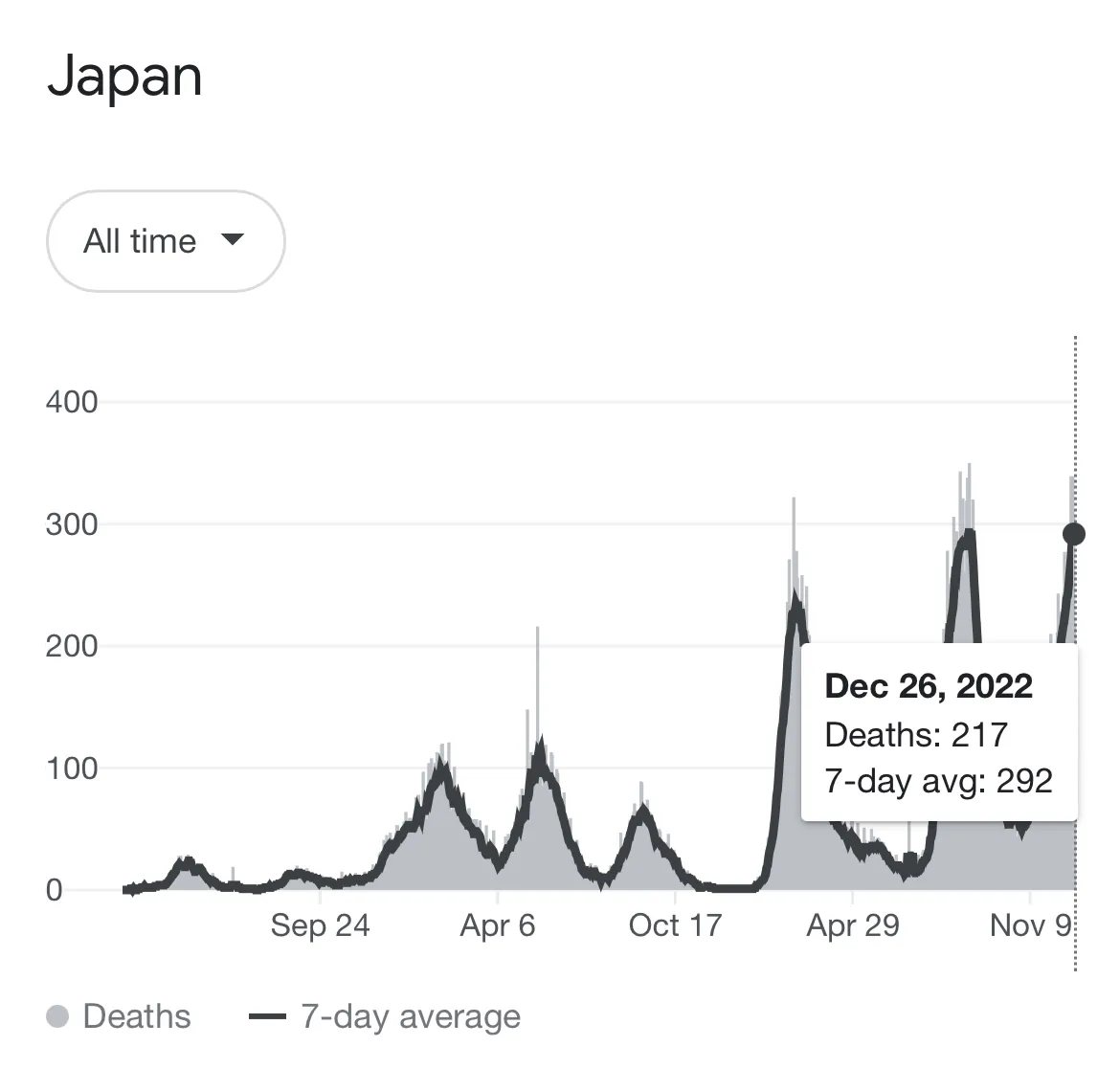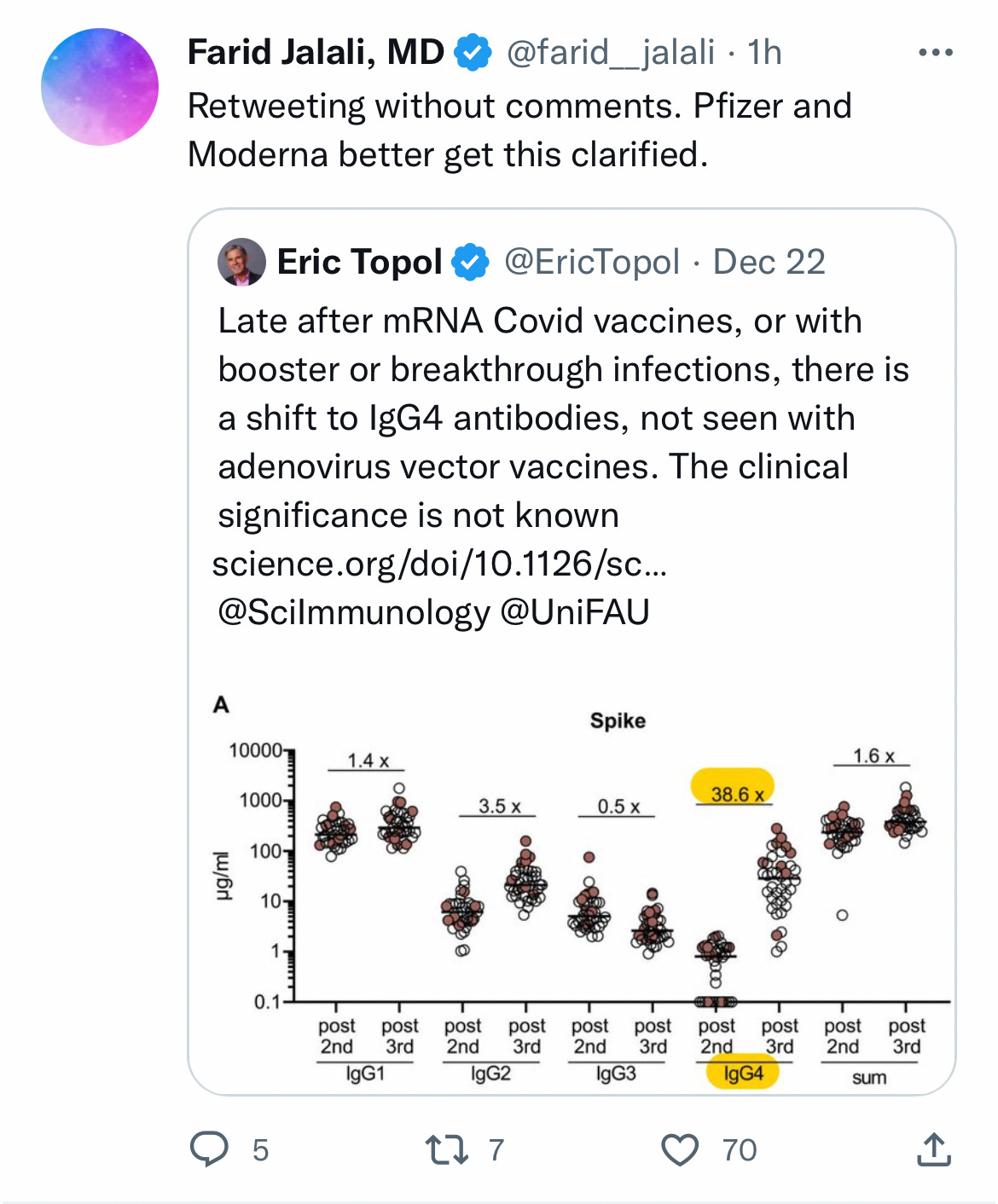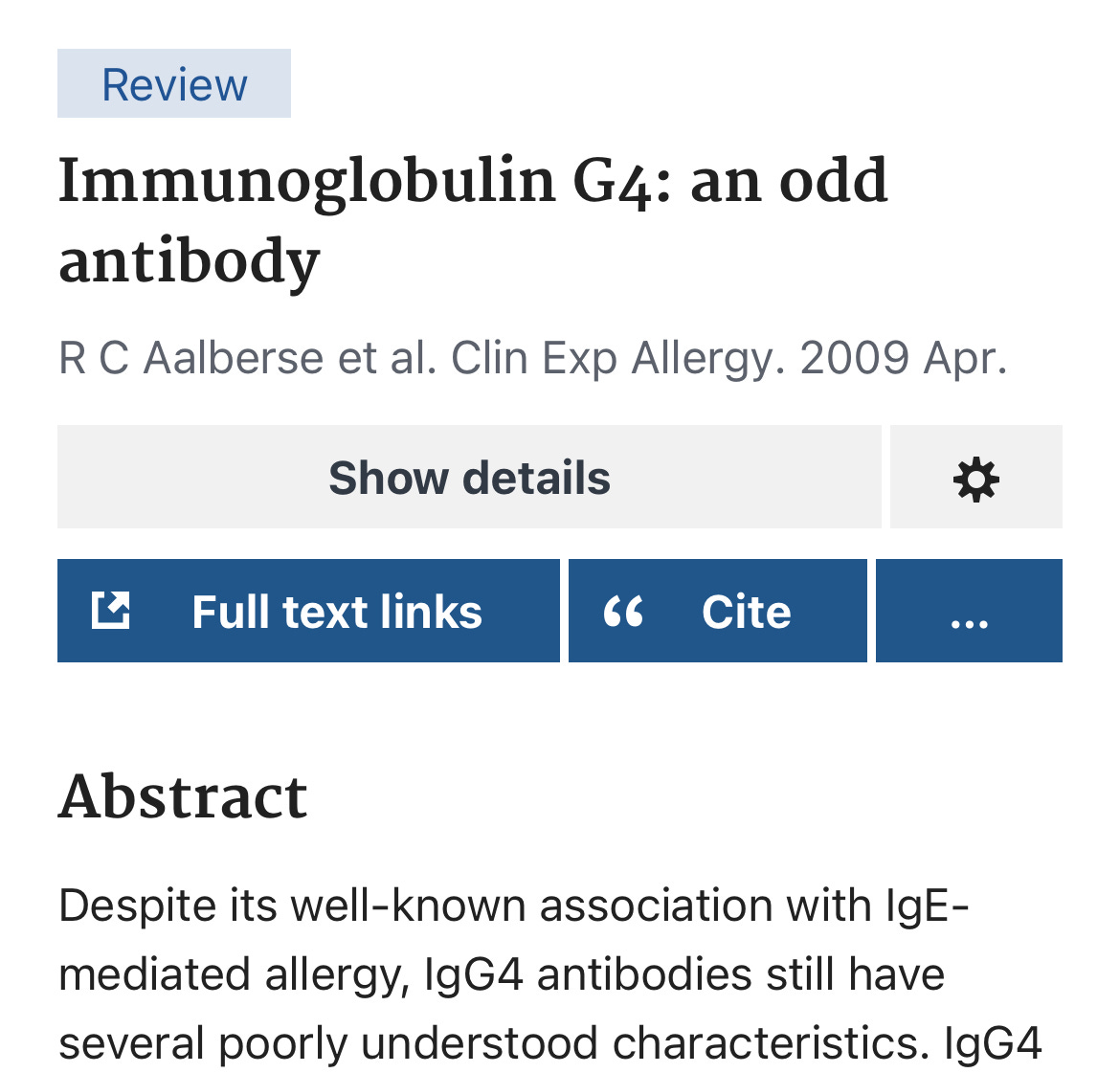by Alex Berenson, Unreported Truths:

A disturbing new paper offers evidence they do – and could help explain the unending Omicron waves in mRNA countries.
A new peer-reviewed paper has troubling news for anyone who has received multiple mRNA shots, suggesting the immune system paradoxically weakens a crucial part of its Covid response after the third jab.
The immune shift causes the body to make relatively more of a less potent kind of antibody to Covid, displacing antibodies that attack the virus more aggressively. The change could heighten the risk of Covid infection and mean that people who are infected suffer longer and more serious cases.
TRUTH LIVES on at https://sgtreport.tv/
It may also increase the chance of certain autoimmune disorders, though that connection is more speculative.
Worse, the researchers found evidence that being infected with Sars-Cov-2 after receiving a booster worsens rather than reverses the shift.
The authors did not find a similar immune change in people who got other Covid vaccines, only the mRNAs.
The findings could help tie together case reports of post-mRNA autoimmune disorders like lupus and the unending waves of Covid in highly mRNA vaccinated countries. For example, Japan – where nearly every adult is vaccinated and boosted -set a new seven-day record for Covid deaths yesterday.
The paper “provides a very reasonable immunologic explanation for why the mRNA vaccine booster regimens are failing,” a physician who read it emailed me. “A great paper and raises a lot of questions which should be asked. Particularly when you have empirical population-wide data that something’s not working properly.”

—
The report was published last Thursday in Science Immunology under the anodyne title “Class switch towards non-inflammatory, spike-specific IgG4 antibodies after repeated SARS-CoV-2 mRNA vaccination.”
One of the study’s authors acknowledged on Twitter that its findings were “very unusual,” but the paper mostly plays down their potential significance.
Nonetheless, the findings have generated worry even among vaccine advocates. “Pfizer and Moderna better get this clarified,” tweeted Dr. Farid Jalali, in reference to a post about the study. Dr. Jalali, a California physician, recently signed a letter to the Food and Drug Administration calling for “Urgent Vaccine Access.” (He has since made his Twitter account private.)

—
A group of German scientists released the research as a preprint in July, but it attracted little notice until Science Immunology formally published it on Dec. 22. It is not clear if the new interest comes because the paper has passed peer review or because Covid’s continued surge is troubling researchers.
Like many other scientists, the German researchers measured anti-spike-protein antibodies that people produce after Covid vaccination. Both mRNA and DNA jabs cause the body’s cells to produce spike proteins like those on the surface of the coronavirus.
Those proteins then cause the immune system to make antibodies – Y-shaped proteins which attach to pieces of the spikes. In the case of a real coronavirus infection, the vaccine-generated antibodies stick to the surface spikes on the coronavirus and keep it from attaching to our cells.
Confirming hundreds of similar studies, the German researchers found that levels of a crucial antibody called Immunoglobulin G, or IgG, rose dramatically after the second and third mRNA doses. Those increased antibodies have been the triumph of the mRNA vaccines.
Then the German scientists took a step other researchers had not.
They looked at the specific subtype of IgG antibodies people had produced over time. IgG antibodies come in four subcategories, called IgG1 through IgG4. IgG1 is the most common, while IgG4 is the least, accounting for fewer than 5 percent of all IgG antibodies under normal circumstances. One 2009 review calls it an “odd antibody.”

Most notably, unlike the other three antibodies in its class, IgG4 does little to help other immune system cells attack viral or bacterial invaders directly. Compared to the other IgGs, it rarely promotes “phagocytosis,” the process by which other immune cells “eat” the virus or bacteria to which the antibody has attached. A 2017 review found that it “plays a limited role in the immune process.”
In fact, because it provokes a weaker immune response, IgG4 has been shown to become more common in people chronically exposed to allergens. Beekeepers famously develop higher levels of IgG4 antibodies to bee venom over time, for example.
When the German researchers looked at the way the classes of IgG antibodies changed over time, they saw something they weren’t expecting. Shortly after a second mRNA dose, vaccinated people had almost no IgG4 spike protein antibodies. Only 0.04 percent of all the IgG antibodies were IgG4 at that point.
Read More @ alexberenson.substack.com




